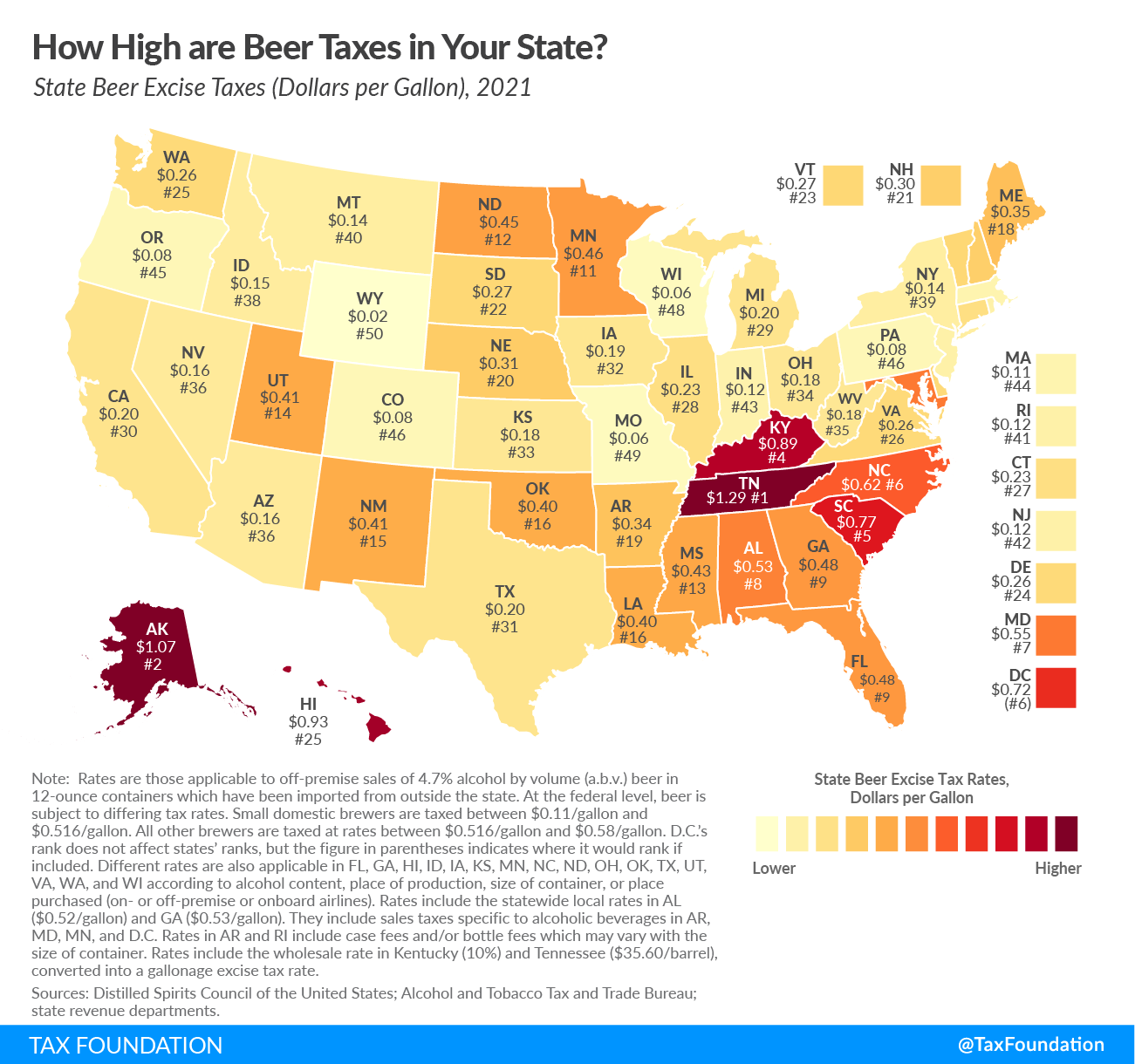’Tis the season to crack open a cold one, and as the country is reopening, doing so at a cookout or a baseball game is back on the schedule. In the midst of summer’s usual uptick in beer sales, take a minute to discover how much of your cash is actually going toward the cost of a brew.
The United States collects an excise tax on beer at the federal level (ranging from $0.11 to $0.58 per gallon based on production, location, and quantity), but all 50 states and the District of Columbia also collect their own taxes on fermented malt beverages. While general sales taxes are tacked on after the price of goods is subtotaled, most states go straight to the retailer for beer excise taxes, collecting according to the quantity of beer sold (usually expressed as a rate of dollars per gallon). Although you can’t see the taxes on your receipt, vendors pass along those costs to consumers in the form of higher prices.
In most states, the legal burden of remitting beer excise taxes falls on retailers, but some collection variations exist from state to state. For instance, some states levy taxes further up the supply chain by taxing brewers, importers, or other wholesalers at a percentage of revenue generated or at a fixed price per gallon, bottle, or case of beer sold. Many states also generate revenue by collecting license fees from beer distributors.
Because beer taxes are often collected at earlier points in the supply chain, the only tax a consumer will see printed on his or her receipt is any applicable state or local sales tax that applies to the purchase. Some states specify higher alcoholic beverage sales tax rates (that apply to beer, wine, and spirits) in lieu of the general sales tax rate.
The accompanying map shows the state beer excise tax rates in all 50 states and the District of Columbia. Rates vary widely: as low as $0.02 per gallon in Wyoming and as high as $1.29 per gallon in Tennessee. Missouri and Wisconsin tie for second lowest at $0.06 per gallon, and Alaska is second highest with its $1.07 per gallon tax.
The per-gallon rate shown on the map reflects the beer excise tax for a 4.7 percent alcohol by volume (ABV) beer in a 12-ounce container. Sixteen states have beer excise tax rates that vary based on alcohol content, place of production, size of container, or place purchased. For example, in Idaho, beer containing more than 4 percent ABV is considered “strong beer” and is taxed like wine at $0.45 per gallon. In Virginia, the per-bottle rate varies for bottles that exceed 7- and 12-ounce thresholds.
How does your state compare?
Note: This is part of a series in which we examine state excise tax collections.
Was this page helpful to you?
Thank You!
The Tax Foundation works hard to provide insightful tax policy analysis. Our work depends on support from members of the public like you. Would you consider contributing to our work?
Contribute to the Tax Foundation
Share This Article!
Let us know how we can better serve you!
We work hard to make our analysis as useful as possible. Would you consider telling us more about how we can do better?
